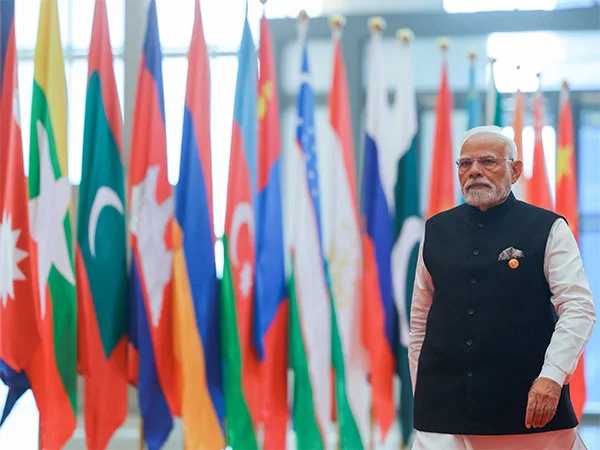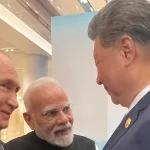VENUS UPADHAYAYA
The timing of the Tianjin SCO has incidentally complemented the timing of Trump’s 50 percent punitive tariffs on India that kicked off just three days before Modi landed at the Chinese summit and met Chinese leader Xi Jinping.
There’s certainly some buzz about China coming with a hand to help India heal from the US tariff bite. There’s also a rush around interpreting what “partners not rivals” mean in the statements released after Modi and Xi’s meeting on Sunday. “Partners and not rivals” are a few common words that find a mention in statements from both sides. Trump tariffs certainly form a context to this.
“Given the great uncertainties in the world economy, it is vital for India and China to strengthen cooperation as important economies of the world,” said the statement by the Chinese Ministry of Foreign Affairs while quoting Modi.
Both the sides used the term “strategic autonomy” while emphasizing that “India and China relations should not be seen through a third country lens,” as the India side put it or “bilateral relationship is not subject to the influence of any third party,” as the Chinese side worded it differently.
There’s nothing casual in the usage of words in the official statements from both sides and it’s interesting to note the difference. While commenting on the trade between both sides, the statements by the Indian Prime Minister’s Office and the External Affairs ministry both mention the following:
“On economic and trade relations, they recognized the role of their two economies to stabilize world trade. They underlined the need to proceed from a political and strategic direction to expand bilateral trade and investment ties and reduce trade deficit.”
The Chinese side did quote Modi on developing “bilateral ties from a long-term perspective” but nowhere talked about the trade deficit which is almost 100 billion accounting for 35 percent of India’s total trade imbalance. Wonder how the two sides have such different interpretations and documentations of the same meeting!






